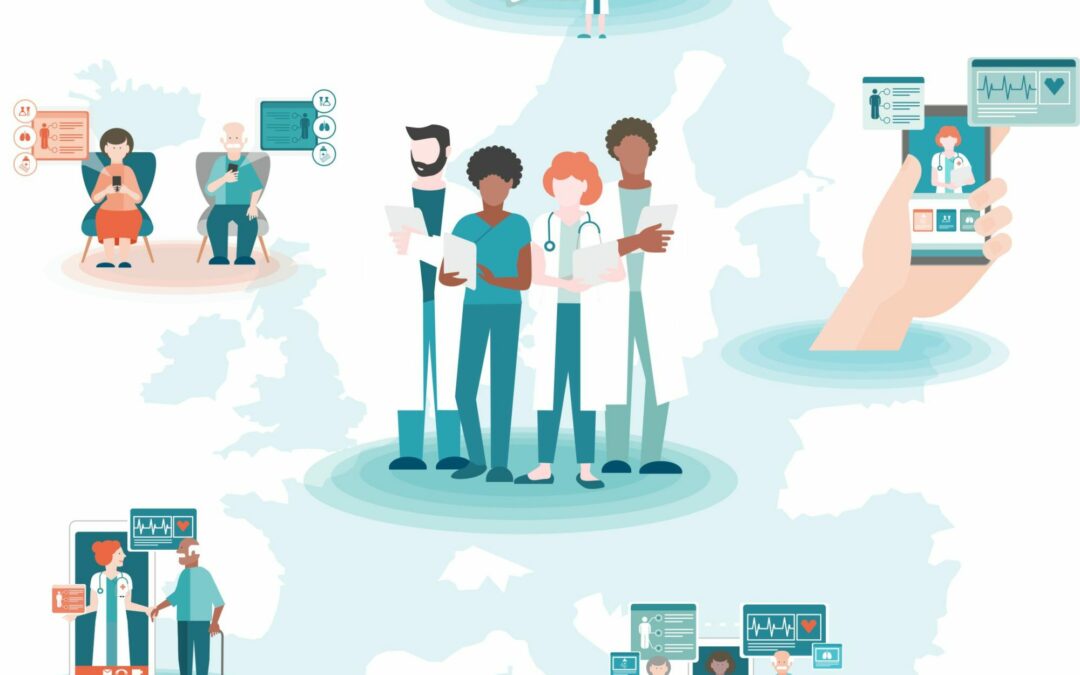While moving towards implementation in upcoming 2022, JADECARE recently finished a series of reports, i.e. (internal) milestone 14 (see also articles “Lessons learned on general principles and successful implementation” and “Core elements of sustainability”). These reports summarise collective wisdom of all JADECARE partners. They build on outcomes of questionnaire and interview rounds engaging most of JADECARE constituency. This text focuses on expectations on implementation, support methods and networking elicited through a Delphi-like process in two rounds: DELPHI round 1 has been based on ten open-ended questions, round 2 primarily on a series of rankings, complemented by some free text input.
This publicly available summary conveys insights into working and networking processes within the Joint Action, also coping with challenges imposed by the Covid-19 pandemic. It highlights:
- Expected outcomes and expected challenges incl. Covid-19 related ones.
- Managing study visits at original Good Practices and implementation-related thematic workshops at Next Adopters (scope and organisation).
- Overall expectations on the collaboration process and towards support by the JADECARE Policy Board
Expected outcomes and expected challenges incl. Covid-19 related ones.
Partners expect that the Joint Action will support the enhancement of international networks, increase visibility of the original Good Practices and their implementation at Next Adopters at international level, provide inputs for an update of national/regional strategy development and implementation, increase the capacity building in the organisations, and give models for the design of innovative concepts and services.
Thus, partners expect to develop very specific solutions like a multilevel digital eligible innovation ecosystem for children or tele-psychiatry healthcare as national level pilot projects by implementing good practices adopted within the Joint Action. Partners hope that this project will evolve as a starting point of a wider process to support the scaling up of good practices.
There are many successful initiatives, also related to Covid-19 and integrated care, but there is a widespread lack of scaling up which instead needs to be guaranteed.
One big challenge pointed out by project partners is the involvement of all the necessary professionals from the local health system. In the local ecosystem, the necessary knowledge and expertise do exist, but also a real lack of time for the healthcare professionals for research activities, and the Covid-19 pandemic only makes it more difficult, e.g. limitation of physical meetings or visits to implementation sites. Thus, more virtual meetings and appropriate communication platforms are needed.
Managing study visits at original Good Practices and implementation-related thematic workshops at Next Adopters’ sites (scope and organisation).
Given the pandemic, options for Study visits were adjusted for virtual environment settings. Expectations were that Study visits should be adjusted to the needs of the Next Adopters as much as possible, hence study visits must provide enough opportunities for problem solving and advice. Partners expect that the study visits are most beneficial, if they are dominated by a theory lesson, yet quite the contrary, very practical. Partners pointed out that the fact of not being able to visit early adopters of good practices in situ is an important handicap, and a greater effort would be advisable to solve it by showing useful situations and concrete examples. Due to this fact, the content should be ready-made and as clear-cut as possible. One negative aspect of the virtual visit is that not the same amount of information can be shared among partners compared to live interactions where participants can observe and discuss the practice in variety of ways or in more detail. Therefore, it might be important that there is enough preparation and interactions in advance for good practices’ actors and Next Adopters.
The thematic implementations workshops at Next Adopters’ sites aim bringing visibility to actors at local/regional/national level and boost communication with stakeholders, that are important for the sustainability – local, regional and national seminars will be organised, focused on practical topics such as use of ICT to support collaboration and coordination of care particularly in the Next Adopter region – on the one hand, and on strategic integrated care measures and policies relevant for the whole country on the other. These workshops are expected to be important for networking with the decision-makers to increase sustainability and scalability potential.
Overall expectations on the collaboration process and towards support by the JADECARE Policy Board
Delphi results demonstrated that all partners are highly committed to mutual exchange and learning in the European setting. Next Adopters emphasise the importance of knowledge transfer for original Good Practices through events, peer review, and training to accelerate the implementation and to improve the efficiency of regional health care systems. Especially valued is the know-how on digitally enabled integrated care, and how to tailor services around specific local settings. Referring to the learning process the project partners strive to receive guidelines on general key and specific themes to accompany the process of developing digitally enabled integrated care. It is considered essential to receive exhaustive background information and accurate descriptions of the practices, to enable the Next Adopters to get familiar and to build up a good understanding of the original Good Practices, as preparatory work for the successive sessions. Besides Next Adopters expectations for learning more on their targeted original Good Practices, the exchange with other Next Adopters with whom they share a similar constellation of needs and challenges seems also to be of added value.
Regarding the Policy Board, it is relevant that the board members have the competence and the capacity to impact national policy changes. While structures and roles vary between the European States some adjustments are needed for each country. The Policy Board oversees high-level recommendations issued by the Joint Action and strives ensuring that these recommendations are shared with relevant stakeholders in their settings.
